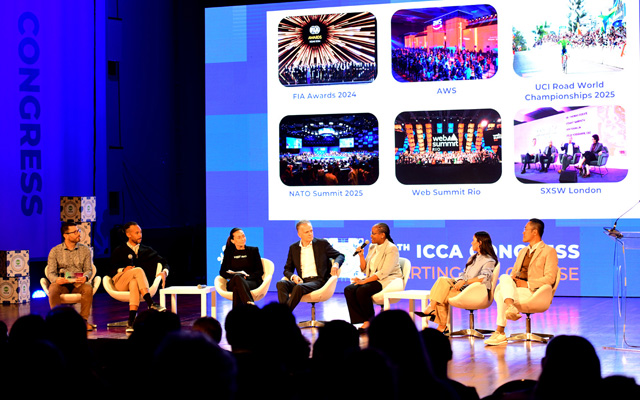
To have a true impact on a destination, mega events should engage communities, benefit local economies, and leave a lasting legacy, a panel of experts shared during the Game-changers or chaos-makers? The true impact of large-scale events panel on November 9’s ICCA Congress 2025 Welcome Ceremony.
“Mega events can really transform a destination, economically, socially and sometimes even emotionally,” said Anais Aite, head of strategic expansion at Fédération Internationale de l’Automobile, citing the example of the annual car race, 24 Hours of Le Mans.

The event attracted about 329,000 people in 2024 – more than the French city’s population – and injected over 160 million euros (US$185.2 million) into the local economy, while creating thousands of jobs.
Michael Middendorf, of the World Forum, NATO Meeting at The Hague, said mega events bring huge long-term advantages to a destination, such as new infrastructure that continues to benefits locals after the event has ended.
Managing social disruption is essential, noted Janet Karemera, CEO of Rwanda Convention Bureau. Public engagements were intense in the run up to Rwanda’s UCI Road World Championships in September. For example, family rides were organised, the event’s mascot visited local schools, and the CVB worked with businesses to ensure they benefited.
Randel Bryan, marketing director of SXSW London, added that organisers must build “the foundations and relationships, and events or programmes that can deliver real outcomes for the (host) destination”.
Creating a lasting legacy is key, urged speakers. Rich Jee, head of marketing at Amazon Web Services in South Korea, recommended partnerships with various stakeholders, including policy makers, to ensure alignment with long-term benefits of the destination. “It’s important to build future, shared goals,” he remarked.
Roberta Werner, executive director of Visit Rio, cited authenticity as another essential ingredient.
“People want to experience the authentic stories of the regions they’re travelling to. So, be authentic about what makes you really unique,” she said.




















